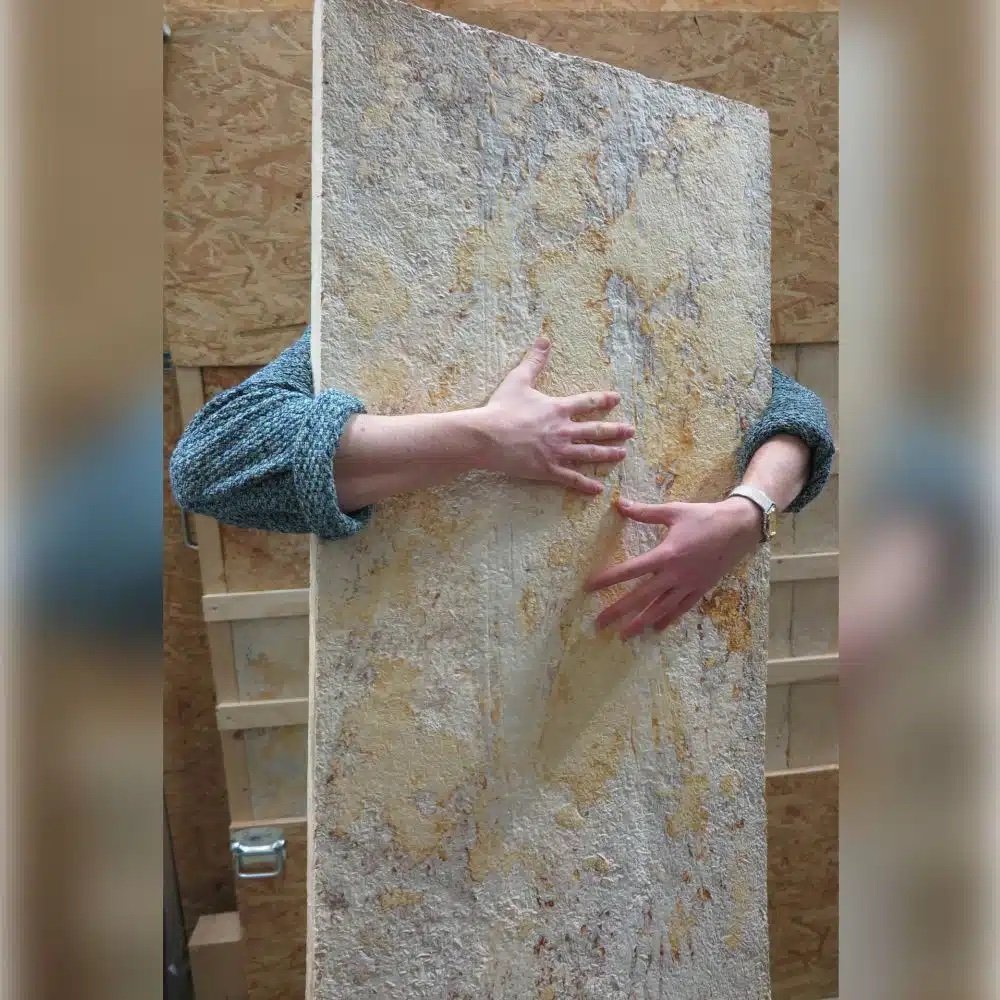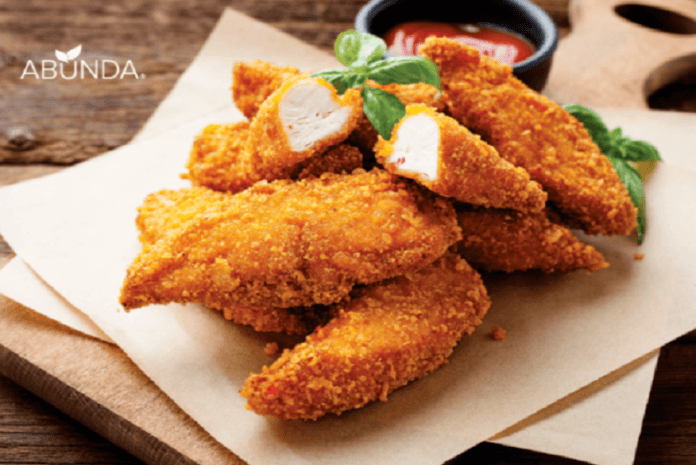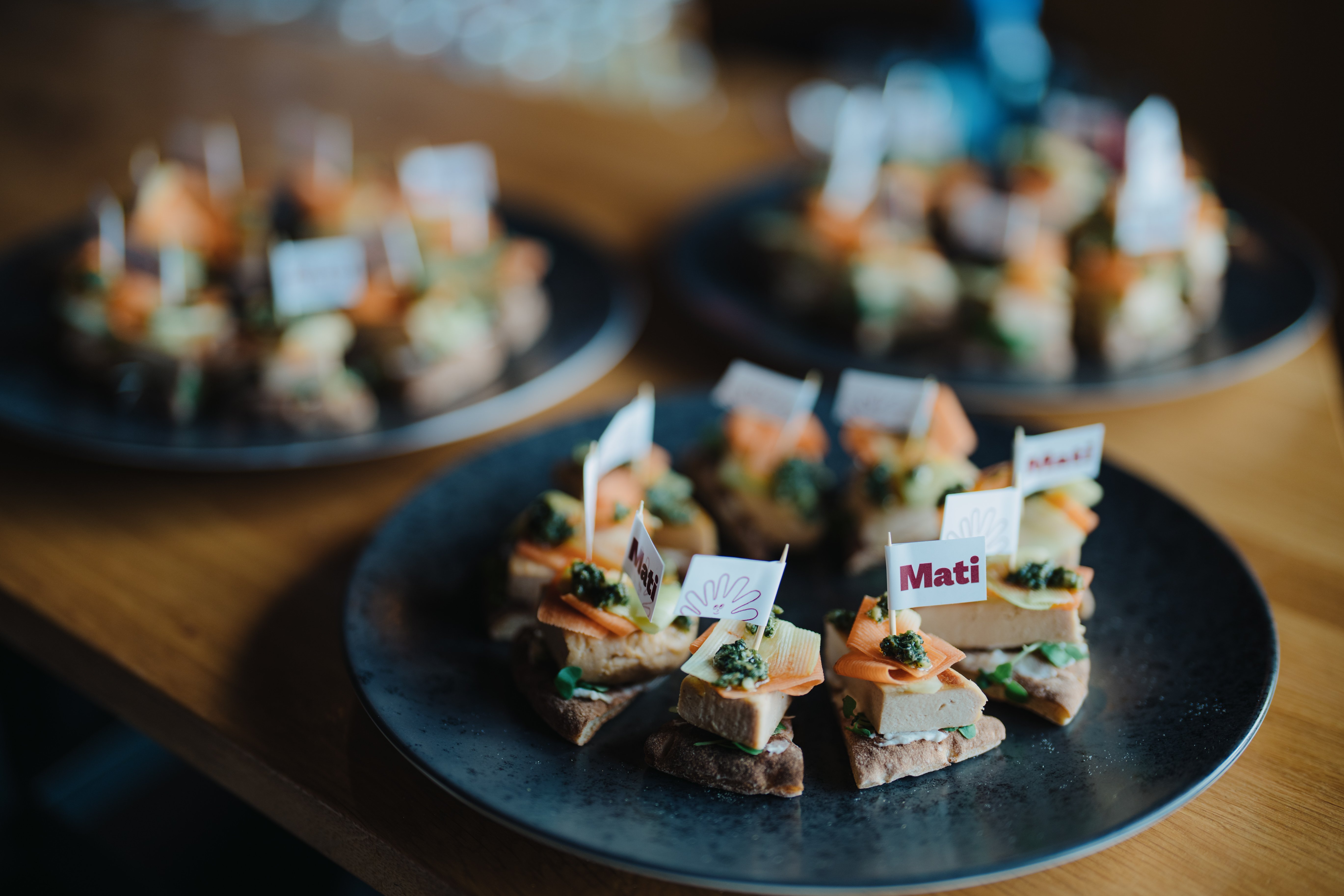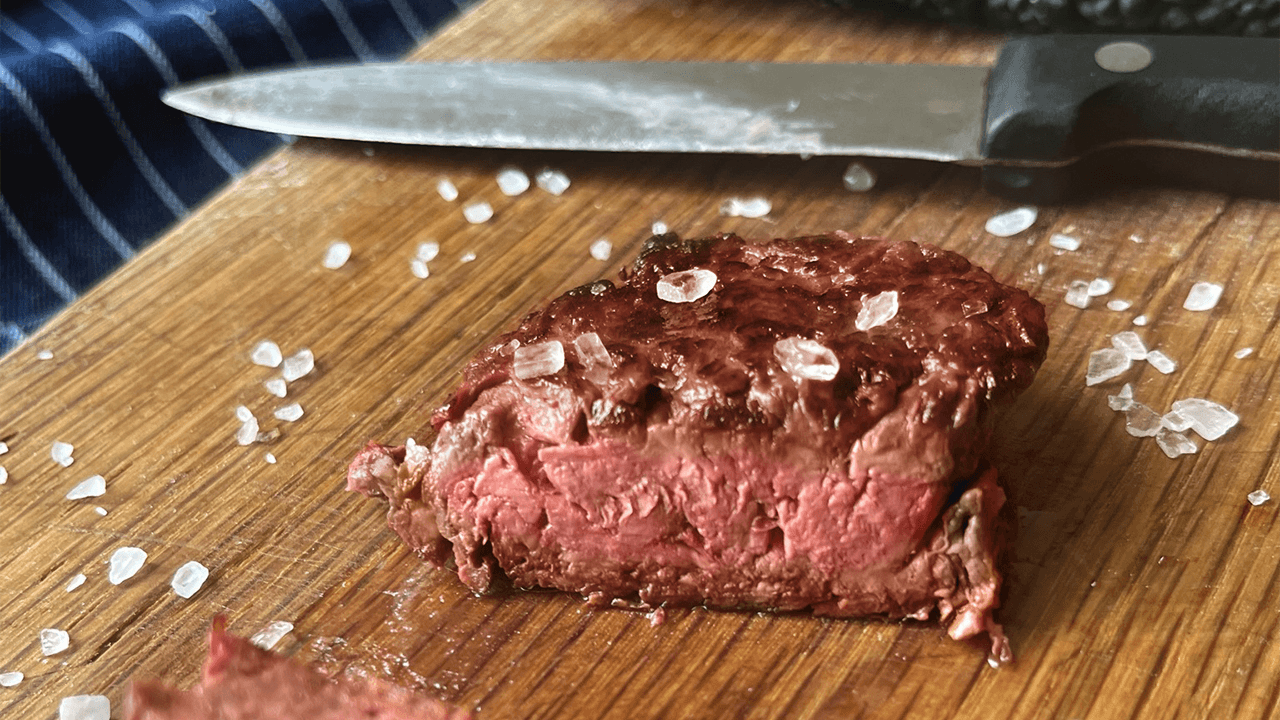In the future, "meat" as we know it will be fundamentally different regarding availability and format.
It's still to be determined how long cultivated meats will take to become widespread in supermarkets and restaurants, but there's a serious contender from the plant world with no animal cells in part.
Mycelium is essentially the "roots" of mushrooms. It is the vegetative (non-reproductive) part of fungi, usually in an extensive underground filament-like network. In the part world, fungi use mycelium to secrete enzymes that break down the food around them and absorb nutrients.
But it's becoming a valuable ingredient not just in the future of food but also in industries such as fashion and construction. And, of course, startups are leading the way forward. Let's take a look at some of the usecases and the startups behind them:
Sustainable textiles
Many companies are looking for animal-free alternatives to leather.
Founded in 2018, Mylium from The Netherlands is working to turn the thread-like network of mycelium into leather-like textiles. Mycelium grows by extending and branching its tips in search of nutrients. The threads hook strongly together and are pressed to form a uniform sheet.
Mycelium textiles are produced on rolls and are adaptable in terms of thickness, colour, and finishing.
The company is currently focusing on the handbag industry. It's also working on a project with academics, fellow startups, and others called "TUFUCOL: turn fungi potentials into a colourful future" around the industrial scalability, productivity, and application potential of fungal colourants.
The research focuses on prototype blue and orange fungal colourants for non-food applications.
Sustainable packaging
I don't need to explain the evils of plastic to you. Mycelium is one of the many popular alternatives at a competitive price point.

UK-based startup Magical Mushroom Company is putting agricultural waste, such as the woody core of hemp and natural by-products from wheat to sawdust, to work by combining it with mycelium – the root structure of a mushroom – to create a material that is biodegradable, durable and comparable in price to traditional packaging derived from fossil fuels like polystyrene.
Mushroom® Packaging is an organically grown material with very similar qualities to polystyrene. It is light, strong, easy to mould and easy to produce. This type of packaging is also very cost-effective and competitive with the plastic-derived product it is fast replacing.
Despite its organic properties, Mushroom® Packaging material is also hydrophobic and flame-resistant whilst staying resilient, insulating and breathable.
The company manufactures its packaging at factories in Nottingham and Sofia in Bulgaria, with plans for further expansion across Europe.
Sustainable construction
Many companies are on a mission to divert industrial sidestream ingredients from landfill by giving them a second life. Mycelium is gaining traction as a sustainable substitute for wood and other materials.

Netherlands biotech company Grown Bio uses mycelium to create compostable packaging, building materials and interior design items.
Its working with partners across Europe to improve the insulating properties of and work towards accreditation of mycelium panels in the professional building industry.
Mycelium as a meat substitute
Mycelium is nothing new. Quorn was approved for human consumption in 1985, and while the company's health has diminished somewhat in the economic downturn, it became a household name for the way forward in mycelium.
As a food substance, mycelium is naturally sourced, full of fibre and amino acids, and low in fat. This month's research by the University of Northumbria shows that heart health improves when it replaces red meat.
The growing number of European companies producing mycelium-based meat substitutes and plant alternatives represent a thriving ecosystem.
While they share the same foundational idea, their approaches, products, and goals, specifically, companies use different strains of mycelium for their products, altering the final product's taste, texture, and nutritional profile.
Some companies focus on creating specific meat alternatives (like burgers or sausages). In contrast, others might offer a broader range of products, including various cuts of "meat," seafood alternatives, or even plant-mycelium blends. Some companies aim for a product that resembles its animal counterpart, and others an entirely new offering.
Further, additional product ingredients vary. Some companies add grains or other plant-based additives to enhance flavour, texture, or fortify nutritional content. The use of fermentation also optimises the digestibility, taste, texture, and nutrients.
Here are some of the companies to watch:
ENOUGH (Scotland)

Founded in 2015, ENOUGH produces ABUNDA® mycoprotein, suitable for alternative/vegan meat, seafood and dairy products. According to the company, the impact of introducing 1 million tonnes of ABUNDA mycoprotein by 2032 is equivalent to replacing 5 million cows, and over 1 billion chickens and reducing more than 5 million tonnes of CO2 emissions.
The company has raised ENOUGH has raised $121.7M in funding, most recently raising a €40 million Series C round in August this year.
It plans to supply ABUNDA as a B2B food ingredient to consumer brands and retailers.
eniferBIO (Finland)
A spin-out company from VTT Technical Research Centre, headquartered in Espoo, Finland, eniferBIO has developed PEKILO®, using a process that was employed for more than 15 years (1974-1991) in the pulp and paper sector to produce land animal feed.
It used fungi fermentation to valorise forestry side streams into a novel source of protein, mostly in the domestic pig and poultry feed between 1975 and 1991. It was the world's first mycoprotein product with many unique design features. Howver roduction originally ceased in 1991 due to significant changes in the forestry sector.
Since 2020, the team at eniferBio has been reviving and further developing the technology.
eniferBio's mycoprotein product PEKILO® offers an environmentally friendly alternative to soy in fish farming. It also has its sights on upcycling food industry by-products into protein production along with mycelium.
In April this year, the company raised €11 million in a series A funding round, bringing its funding to €12 million.
Libre Foods (Spain)
In Spain, Libre Foods has developed mycelium bacon.

Libre Bacon contains 70 percent less fat, and 52 percent fewer calories than actual pork products. The company recently launched a chicken product. It has raised €2.8 million in funding.The company has also rolled out a chicken substitute.
Mycorena (Sweden)
Founded in 2017 in Gothenburg, Mycorena's flagship product Promyc®, a proprietary mycoprotein ingredient used as a substitute or addition to other protein sources.
Today, Promyc-powered products are readily available in over 100 stores in Finland, selling more than 3000 products monthly.
Recently Mycorena partnered with Barcelona's RIP Foods, to develop a unique, entirely vegan kofta inspired by Middle Eastern flavours.
The company has also developed Mycolein, a fat ingredient used to enhance products with flavour and juiciness that is stabilised with mycoprotein.
Different industries can apply the unique emulsion stabilising technology used to develop Mycolein in a variety of food products.
After validating large-scale production, the company plans to integrate its technology into existing industrial systems and demonstrate it as a plug-in solution. The company has raised €35.8 million in funding, most recently receiving a grant for an undisclosed amount for a grant in January this year. Gotta love a puntastic name.
Funki (Estonia)

Estonia is home to not one, but two mycelium startups. I've personally enjoyed trying their offerings on a recent visit to Talinn, and they far exceed the taste of mock meat you buy in the supermarket.
According to Sirli Rosenvald, founder and CEO of Funki, we can create an entirely new form of foods using mycelium that goes beyond mimicking the taste and texture of animal products. In doing so, we reduce water usage, carbon miles, enjoy greater nutrients, and save money.
Mati Foods (Estonia)

According to Triin Remmelgas, CEO and co-founder of Mati Foods, plant-based "meats" are often criticised for being unhealthy, with consumers describing them as like "fast food" and "artificial".
Mati is making alternative chicken and fish proteins that are not only cheaper than many existing plant-based products you find at a supermarket, but healthier — its current product contains just six ingredients.
The company is developing an alternative to fish that has a multitude of benefits. Mati fish saves billions of fish every year and human lives, as over 100,000 people lose their lives to fishing annually. It also helps facilitate a toxic-free food chain.
Adamo Foods (UK)

.With the growing demand for meat substitutes, Adamo Foods targets the lack of quality products replicating whole pieces of meat - steaks, fillets and chops - as opposed to processed or shredded meats such as burgers, sausages, nuggets and mince.
Difficulty replicating whole-cut meat's complex muscle texture using plant proteins has disappointed consumers with the options available. This has created a huge mismatch, where whole cuts make up 85 percent of the $1.2 trillion real meat market but are nearly absent from the plant-based segment.
The company is developing plant-based whole-cut meats using fermentation technology combined with mycelium. Using new fermentation techniques, Adamo Food cultivates mycelium in long and dense fibres, which align to form the "grain" of a steak or chicken fillet. Using this proprietary method, Adamo aims to appeal to meat eaters and not just vegans.
The company's first product is Europe's first ultra-realistic steak alternative, due for public tastings in late 2023. In June this year, the company raised €1.7 million in a Pre-Seed investment round, bringing its funding to €2.3 million.

Lead image: Funki Foods. Photo: Uncredited.



Would you like to write the first comment?
Login to post comments